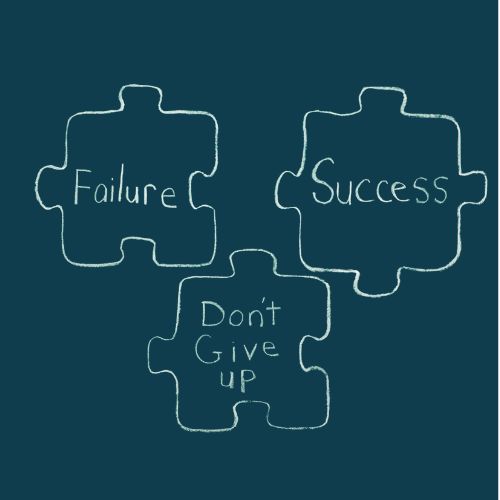
How to Deal with Ghosting: Moving on Gracefully
Ghosting—when someone you’ve been dating or talking to suddenly stops all communication without explanation—can be a confusing and painful experience. In today’s digital age, ghosting has become a common way for people to end relationships, often leaving the other person hurt and searching for answers. This guide will walk you through how to deal with ghosting in a healthy way, providing practical tips for moving on gracefully without letting the experience affect your self-worth.
1. Acknowledge Your Feelings
When someone ghosts you, it’s normal to feel a mix of emotions: confusion, anger, sadness, or even embarrassment. The first step to moving on is to acknowledge these feelings instead of pushing them aside. Pretending you’re not hurt can prolong the healing process.
- What to do: Take some time to sit with your emotions. Journaling or talking to a trusted friend about how you feel can help you process the situation. Recognizing that your feelings are valid is the first step toward healing.
2. Don’t Blame Yourself
It’s easy to fall into the trap of self-blame when someone ghosts you. You might wonder if you said or did something wrong or if there was something inherently flawed about you. However, ghosting says more about the person doing it than it does about you.
- What to remember: Ghosting is often an indication of the other person’s inability to communicate their feelings or handle relationships maturely. It’s not a reflection of your worth or desirability. Remind yourself that you deserve respect and clear communication.
3. Resist the Urge to Reach Out
When someone suddenly disappears, it’s natural to want answers. You might feel compelled to send one more text or ask why they stopped responding. However, trying to chase after closure from someone who has ghosted you is often counterproductive and can leave you feeling even more hurt.
- What to do: Avoid sending multiple texts or messages. If someone chooses to ghost you, they’ve already shown a lack of respect for your time and feelings. Reaching out won’t change that, and it may prolong your emotional attachment to the situation.
4. Accept the Lack of Closure
One of the hardest parts of being ghosted is the lack of closure. We naturally want to know why things ended, but in cases of ghosting, we’re often left with no explanation. Accepting that you may never get closure is key to moving on.
- What to remember: Closure doesn’t have to come from the other person. You can create closure for yourself by accepting that the relationship or connection has ended and that you deserve someone who is willing to communicate openly. Closure is something you give to yourself, not something you get from someone else.
5. Take a Step Back from Social Media
Social media can make ghosting even more painful, as you may still see the person who ghosted you posting updates or interacting online. This can create a sense of false hope or fuel your frustration. It’s helpful to distance yourself from their online presence while you heal.
- What to do: Consider unfollowing or muting the person on social media to give yourself the space to move on without constant reminders of them. Focus on your own life and well-being rather than monitoring what they’re doing.
6. Lean on Your Support System
Talking to friends or family about your experience can be incredibly helpful. They can offer support, remind you of your worth, and provide perspective that might be hard to see when you’re in the thick of it. Isolation can make the pain of ghosting feel worse, so don’t hesitate to reach out to those who care about you.
- What to do: Share your feelings with trusted friends or family members who can offer empathy and advice. Sometimes, just talking about the situation with someone who understands can help you move forward.
7. Focus on Self-Care
Being ghosted can take a toll on your self-esteem and emotional well-being. Now is the time to prioritize self-care and engage in activities that make you feel good about yourself. Focusing on your own happiness and personal growth can help you regain confidence and heal from the experience.
- What to do: Spend time doing things that bring you joy—whether it’s exercising, practicing mindfulness, reading, or engaging in hobbies you love. Surround yourself with positivity and take care of your mental and emotional health.
8. Reframe the Experience
While being ghosted can feel personal, try to reframe the experience as a lesson learned. Rather than seeing it as a rejection, consider it an opportunity to realize that the person who ghosted you wasn’t right for you in the long run. Someone who disappears without explanation likely wouldn’t have contributed to a healthy, respectful relationship.
- What to remember: Reframing ghosting as a blessing in disguise can help you see it as a way of removing someone from your life who wasn’t a good fit. This shift in mindset can help you move on with more confidence and clarity about what you deserve in a relationship.
9. Don’t Let Ghosting Impact Your Future Relationships
It’s easy to become guarded or distrustful after being ghosted, but try not to let this experience affect how you approach future relationships. Remember that not everyone will behave the same way, and there are plenty of people who value open communication and respect. Don’t let one bad experience close you off from potential future connections.
- What to do: Keep an open heart and mind when meeting new people, but also set boundaries and be mindful of red flags early on. Use the lessons you’ve learned to navigate future relationships with clarity and self-respect.
10. Know When to Move On
Ultimately, the best way to deal with ghosting is to recognize when it’s time to move on. Clinging to the hope that the person will come back or offer an explanation can keep you stuck in the past. Instead, focus on the future and what lies ahead for you.
- What to do: Remind yourself that someone who ghosted you is not worth your time or energy. There are many people who will appreciate and respect you, and moving on gracefully will allow you to be open to healthier, more fulfilling relationships.






